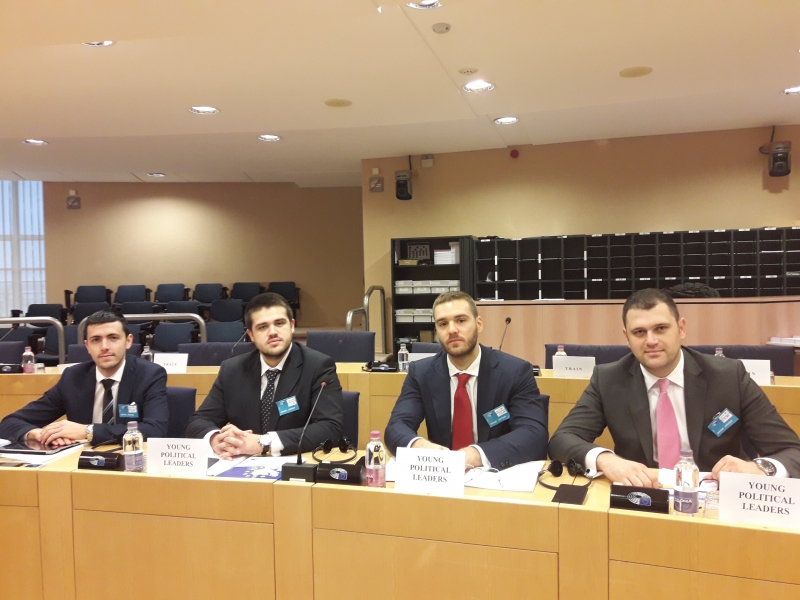The delegation of the Parliament of Montenegro in the following composition: Mr Nikola Rakočević, Mr Miloš Nikolić, Mr Danijel Živković, and Mr Mihailo Anđušić participated in the seminar “Bridging the gap between youth policy, youth participation and parliamentarians in the Western Balkans”, organised by the European Parliament and the European Commission. The seminar, which was held on 20 and 21 November 2017 in Brussels, gathered young MPs from Albania, the FYROM, Kosovo, Serbia, and Montenegro, as well as representatives of the civil society organisations dealing with youth issues.
During the seminar, via presentations by the panellists, as well as meaningful discussion, they opened numerous significant issues relating to the active participation of youth in political processes. They especially emphasised the role of young MPs in motivating young people to get involved in politics and contribute to the decision-making process. They also referred to the need of preserving good cooperation with the civil sector, which had an important role in raising accountability of the authorities, as well as raising awareness of young people. They pointed out the significance of good quality of education of youth, student exchange, as well as internship programmes in the institutions. Furthermore, they pointed out new technologies and social media enabling easier involvement of youth in politics, but also contributing to greater visibility and promotion of youth policies.
On day two of the seminar, member of the Parliament of Montenegro Mr Nikola Rakočević had a presentation within the panel discussion “Why “bridging the Gap” between Parliamentarians and Youth Organisations is important and how to advance the youth policy agenda?”. MP Rakočević spoke of perception of politics by the young and the manners in which the politicians could influence the change of this perception and improve the youth’s relation towards politics. He pointed out that distrust of young people in politicians was the key reason for their lack of interest in politics, and that we should strive to have greater involvement of young people in the decision-making process. He pointed out the need for creating a new vision of prosperity of youth in the Western Balkans, assessing that strong, united Europe had no alternative.
In the last part of the seminar, young MPs had the opportunity to attend a joint meeting of the Foreign Affairs Committee of the European Parliament where views of MPs from the Western Balkans could be heard on the integration process and where they considered prospects of the EU integration and the accession process.
The participants in the seminar had shown great support to the Berlin process, assessing that it significantly helped in connecting the region, but they also showed willingness for further improvement of regional cooperation in the upcoming period.












